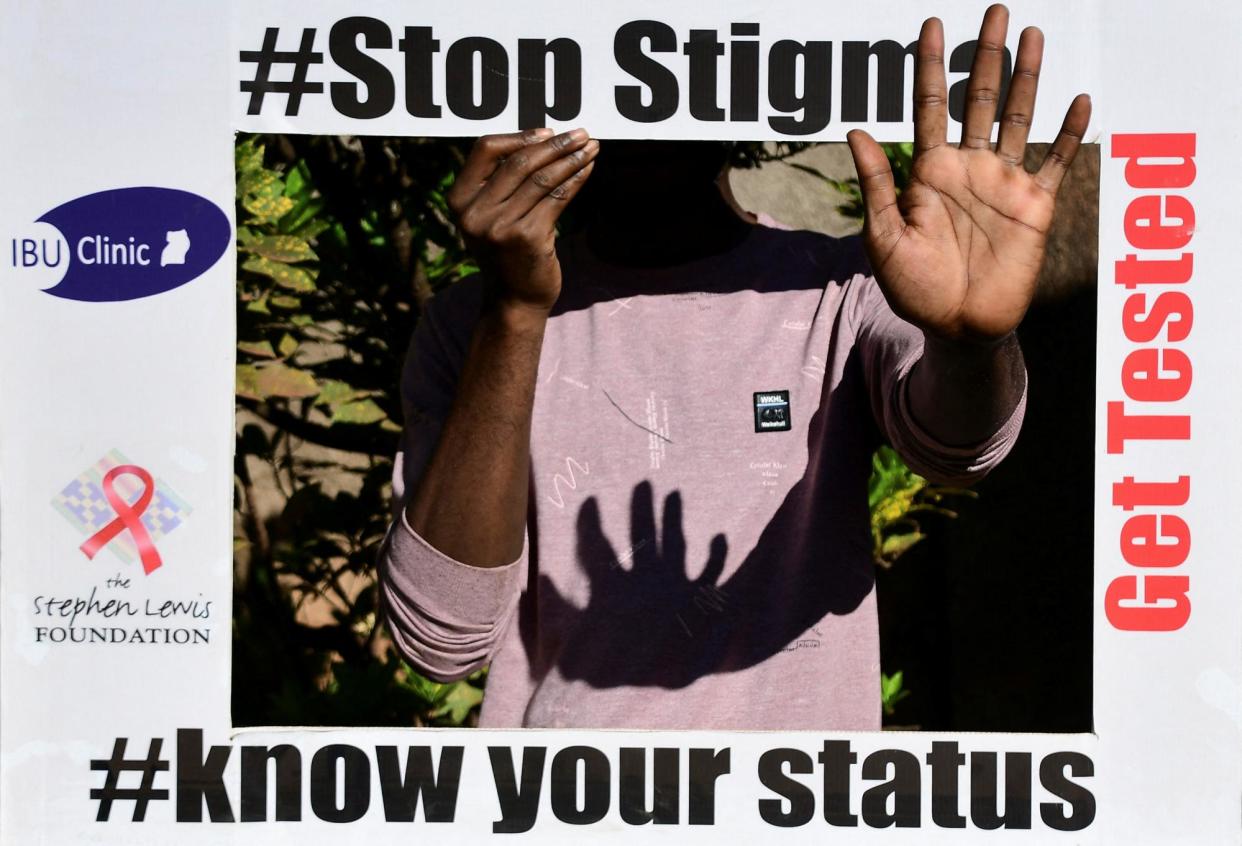Activists in Uganda finalise appeal against draconian anti-gay law

Civil society groups in Uganda will meet constitutional court judges this week as they attempt to overturn the world’s harshest anti-LGBTQ+ law.
The law, which received overwhelming support from MPs when it was passed in March, imposes the death sentence and life imprisonment for certain homosexual acts.
Activists will appear at the court on Monday to finalise their appeal before the date is set for a full hearing later this month.
Clare Byarugaba, an LGBTQ+ advocate from Chapter Four, a Ugandan civil liberties organisation, said: “We are challenging the anti-homosexuality law because it does not pass any constitutional litmus test, and we shall win, because such an abhorrent law whose only aim is to spread hate and institutionalise discrimination and exclusion does not belong on Uganda’s law books and should never have been enacted in the first place.”
Steven Kabuye, gay rights activist and co-executive director of Truth to LGBTQ, said: “It’s now up to the constitutional court judges to show their commitment to protecting the rights of all Ugandans.”
The law has attracted widespread international criticism.
Last week, the US imposed visa restrictions on hundreds of Ugandan legislators and their families over their involvement in enacting the law. No individuals were named.
“The United States stands by the Ugandan people and remains committed to working together to advance democracy, human rights, public health and mutual prosperity,” said US secretary of state, Antony Blinken, in a statement.
“I once again strongly encourage the government of Uganda to make concerted efforts to uphold democracy and to respect and protect human rights so that we may sustain the decades-long partnership between our countries that has benefited Americans and Ugandans alike.”
The US Treasury department also sanctioned Uganda’s prison commissioner, Johnson Byabashaija, over the alleged torture and abuse of human rights of LGBTQ+ inmates at the country’s correctional facilities.
Ugandan president, Yoweri Museveni, dismissed the US restrictions. At the end-of-year national thanksgiving prayers held at State House on Friday, he said: “Don’t be intimidated by all those fellows. If there’s someone who doesn’t want to respect our sovereignty, we pray for them, they can go. We have the capacity, we don’t lack anything, the economy is growing so we shall be able to sustain ourselves.”
Earlier, the speaker of the Ugandan parliament, Anita Annet Among, had urged MPs and officials to ignore the restrictions.
“The blacklist that they are talking about, don’t care, don’t worry about that. You have all that you need in this country, Uganda, so long as your kids are not being sodomised,” Among told legislators.
“We will continue protecting the family, protecting the rights of our children and our country and we will not live on handouts. My visa was cancelled, have I died?” she said. Among’s US and UK visas were immediately cancelled when the anti-LGBTQ+ bill was signed into law.
Chris Baryomunsi, Uganda’s information and national guidance minister, said it was “wrong for the western world to single out Ugandans”.
“We pass laws in the interests of Ugandans, not foreigners. Therefore, nobody is going to coerce parliament or the government to start making laws in the interest of foreigners. We should remain very firm,” he said.
In response, Frank Mugisha, of the banned rights group Sexual Minorities Uganda, tweeted: “The parliament of Uganda is so loud on the anti-homosexuality law and silent on other issues. How is this benefiting Ugandans?”
Since the law was passed, violence and discrimination has intensified against LGBTQ+ groups, according to a recent report by the Convening for Equality (CFE) coalition.
Between 1 January and 31 August, the CFE documented 306 rights violations based on the victims’ sexual orientation and gender identity committed by state and non-state actors, all of which have gone unaddressed by authorities, it said.
Related: US Intel executive ‘actively responsible’ for driving anti-LGBTQ+ agenda in Africa, say campaigners
The report documented 180 house evictions and 176 incidents of torture, and cruel, inhuman and degrading treatment, including forced anal examinations of people held in police custody.
The Human Rights Awareness and Promotion Forum, which provides legal assistance for marginalised groups, said it had handled 83 cases in October involving people targeted for their sexual orientation, up from 68 cases in September.
“We urge the court to nullify the law on substantive grounds and clearly state that LGBTQ+ people have the same rights as all Ugandans to live without discrimination and state-sponsored violence,” the CFE said.
“We have seen an increase of human rights violations and healthcare access challenges since the enactment of the anti-gay law in Uganda,” said Kabuye. “It’s [still] difficult for the LGBTQ+ community to access safe medical care since they [are] outed by medical workers.
“We’re witnessing more evictions and more people being ‘mob justiced’ because they think they’re LGBTQ and more needs to be done to address these issues.”

 Yahoo News
Yahoo News 
